Also in this series: Peach Girl: Sae’s Story, Peach Girl NEXT
Also by this author: Pre Mari, Loco Moco, Papillon: Flower & Butterfly
Warnings: Violence, Sexual Assault, Kidnapping, Bullying, Statutory Rape, Abuse
My Thoughts
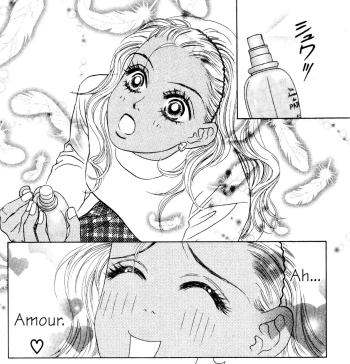 Peach Girl is a nostalgic series for me, it is one of the first shojo series that I really got hooked onto. I loved the bold art style and the characters, the romance, the drama. I really related a lot to Momo, an outgoing but insecure girl that worries about her tanned skin and struggles with a manipulative and jealous friend, Sae.
Peach Girl is a nostalgic series for me, it is one of the first shojo series that I really got hooked onto. I loved the bold art style and the characters, the romance, the drama. I really related a lot to Momo, an outgoing but insecure girl that worries about her tanned skin and struggles with a manipulative and jealous friend, Sae.
This manga struck a chord with me particularly because of the duality between Momo and Sae. I knew a girl that was a lot like her when I was growing up, she always seemed to be changing to fit around other people. Every girl in our friend group came to resent her because she always found a way to get her hooks into other people’s crushes, boyfriends, and later in life a husband, and usually threw all of those boys away after causing a break-up. I never understood that girl, what motivated her, and what she really got out of these things. This was what made Peach Girl so memorable to me, it perfectly encapsulated a part of my life and it reminded me so much of that time.
Going back to this series as an adult, however, I found myself feeling really conflicted about this series. The story starts off strong, it’s so easy to cheer for Momo with an antagonist like Sae. The romance was believable and sincere, and despite some ups and downs everything felt contained. By the fifth volume, however, things started to go downhill and fast. The drama spirals so drastically out of control, and sexual assault is used as a plot point, and again as a scheme for revenge. It was never treated with any real care and it is gut-wrenching that it was used flippantly for a dramatic story arc. There are other very huge problems later on in the series with plot points that are hideously inappropriate. It left a bad taste in my mouth, but I tried to look past this as being a story of its time.
Even putting that all aside, characters seemed to change their minds so quickly and everything always felt so melodramatic and blown out of proportion. Momo finds herself in a love triangle with two equally wonderful and toxic boys and was hurt over and over again. After eighteen volumes, it frankly became exhausting. The indecisiveness of the characters becomes so frustrating, and I stopped caring about any of the characters.
It is the type of pop drama that was popular when I was a teenager, and it’s amazing that there is both a spin-off and a sequel because it all feels like a never-ending empty trashy drama. I wanted so much to love this series, and for it to be one of my all-time favorites, but I just can’t get past the problematic content to love this series, it just carried on for far too long and went way too far.
“I can’t hold your heart prisoner. And people’s feelings change with time. If your heart isn’t really with me, I don’t want you to feel guilty about it.”
Rating:

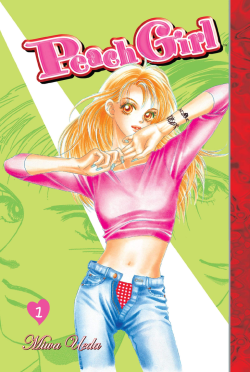
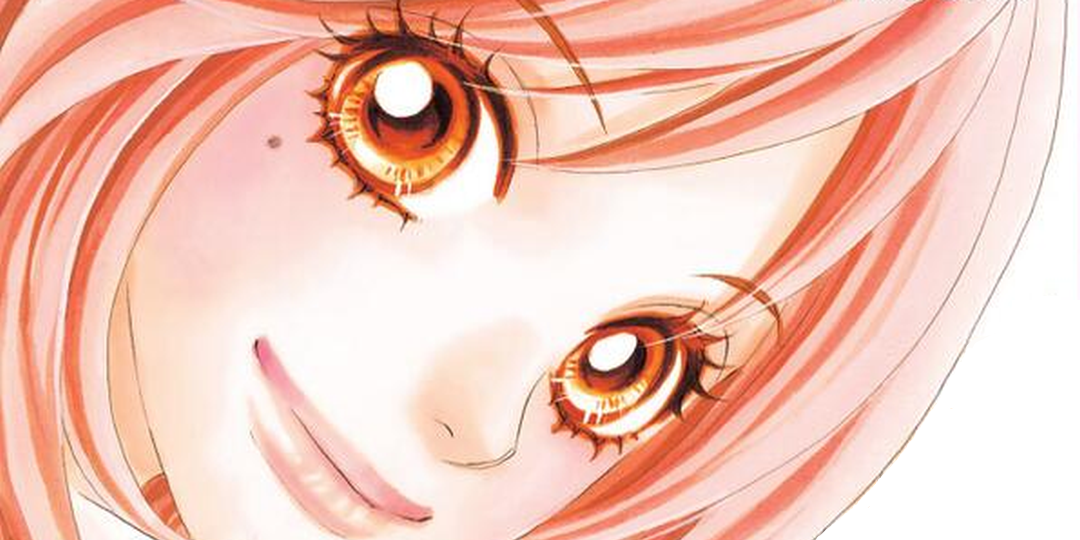
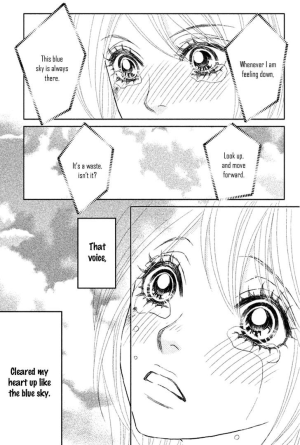 Love confessions are one of those things from my youth that I honestly miss. Confessing to the person that you have a crush on is nerve-wracking, and when looking back there are often so many missed opportunities. I remember the crushing feeling the first time I found out that a high school crush that I had been nursing for months ended up becoming a friend’s boyfriend. This happened a few times, I never felt sour about it but shrugged it off that I was just too slow to act on those feelings.
Love confessions are one of those things from my youth that I honestly miss. Confessing to the person that you have a crush on is nerve-wracking, and when looking back there are often so many missed opportunities. I remember the crushing feeling the first time I found out that a high school crush that I had been nursing for months ended up becoming a friend’s boyfriend. This happened a few times, I never felt sour about it but shrugged it off that I was just too slow to act on those feelings.

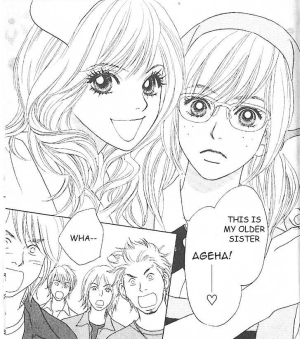 What a disaster, a downright sloppy mess with an awful plot and annoying characters. Papillon is a drama filled teen romance manga about competing twins that tries to dig into some touchy subjects like insecurity, childhood abandonment, post-partum depression, and traumatic loss.
What a disaster, a downright sloppy mess with an awful plot and annoying characters. Papillon is a drama filled teen romance manga about competing twins that tries to dig into some touchy subjects like insecurity, childhood abandonment, post-partum depression, and traumatic loss.

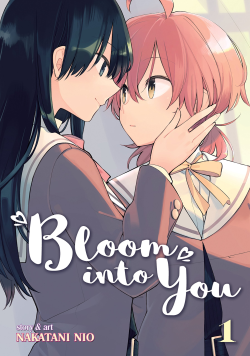 Title: Bloom into You, Vol. 1
Title: Bloom into You, Vol. 1
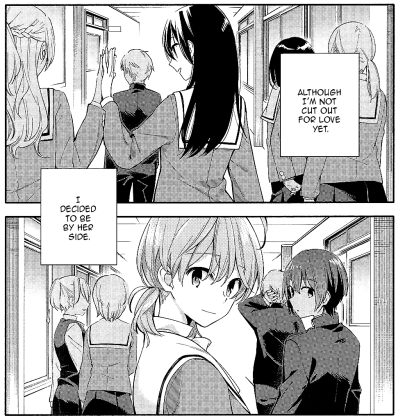 Bloom Into You is, without a doubt, one of the best coming of age love stories that I’ve ever read. Yuu is a young girl that dreams of experiencing the dazzling love that she sees in books and film. Despite this, she doesn’t find herself feeling at all excited when faced with romantic prospects. There is also some wonderful aromantic and demiromantic representation that I didn’t expect to find in this manga, and the subtle differences between each are written well.
Bloom Into You is, without a doubt, one of the best coming of age love stories that I’ve ever read. Yuu is a young girl that dreams of experiencing the dazzling love that she sees in books and film. Despite this, she doesn’t find herself feeling at all excited when faced with romantic prospects. There is also some wonderful aromantic and demiromantic representation that I didn’t expect to find in this manga, and the subtle differences between each are written well.
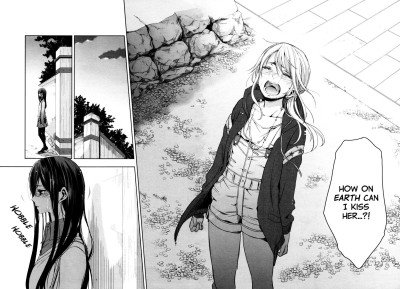 Citrus had been on my radar for a while being one of the more well-known Shoujo Ai manga available in the west. I finally sat down to read it and found myself feeling conflicted about it. The art is spectacular and the manga is worth reading to appreciate that in itself. The characters and the story can be charming and genuinely heartfelt at points, and horribly cliche and boring at other points. My ratings for each volume ended up moving up and down wildly and left me wondering how much I really enjoyed it.
Citrus had been on my radar for a while being one of the more well-known Shoujo Ai manga available in the west. I finally sat down to read it and found myself feeling conflicted about it. The art is spectacular and the manga is worth reading to appreciate that in itself. The characters and the story can be charming and genuinely heartfelt at points, and horribly cliche and boring at other points. My ratings for each volume ended up moving up and down wildly and left me wondering how much I really enjoyed it.
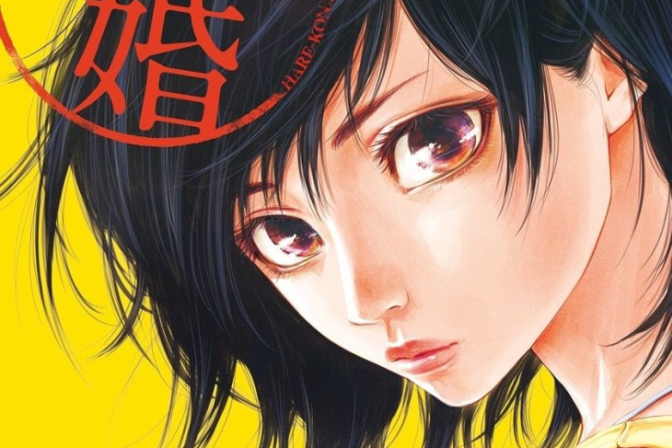
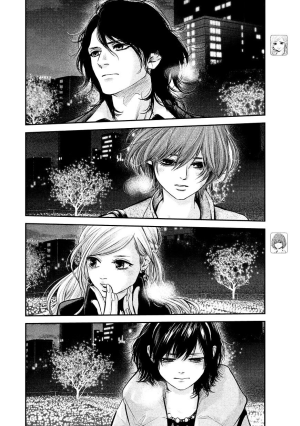 Harems are a dime a dozen in the world of anime and manga, portrayed as the ultimate male fantasy and often played for laughs, it’s a trope that is riddled with issues while not portraying polygamy with any real accuracy beyond gratuitous sex. For some, polygamy is an alternative lifestyle that can be fulfilling and painful for others.
Harems are a dime a dozen in the world of anime and manga, portrayed as the ultimate male fantasy and often played for laughs, it’s a trope that is riddled with issues while not portraying polygamy with any real accuracy beyond gratuitous sex. For some, polygamy is an alternative lifestyle that can be fulfilling and painful for others. To say that this series is frustrating is an understatement, there are many issues with the way that the story is presented spearheaded by a husband that is unabashedly detestable at times. Ryuunoske could be charming and funny, but he is also extremely selfish and manipulative. Koharu “falling in love” was also extremely weak, she goes overnight from hating that she feels forced into a sham marriage to suddenly deciding that her unhappiness must mean that she’s jealous and in love.
To say that this series is frustrating is an understatement, there are many issues with the way that the story is presented spearheaded by a husband that is unabashedly detestable at times. Ryuunoske could be charming and funny, but he is also extremely selfish and manipulative. Koharu “falling in love” was also extremely weak, she goes overnight from hating that she feels forced into a sham marriage to suddenly deciding that her unhappiness must mean that she’s jealous and in love.